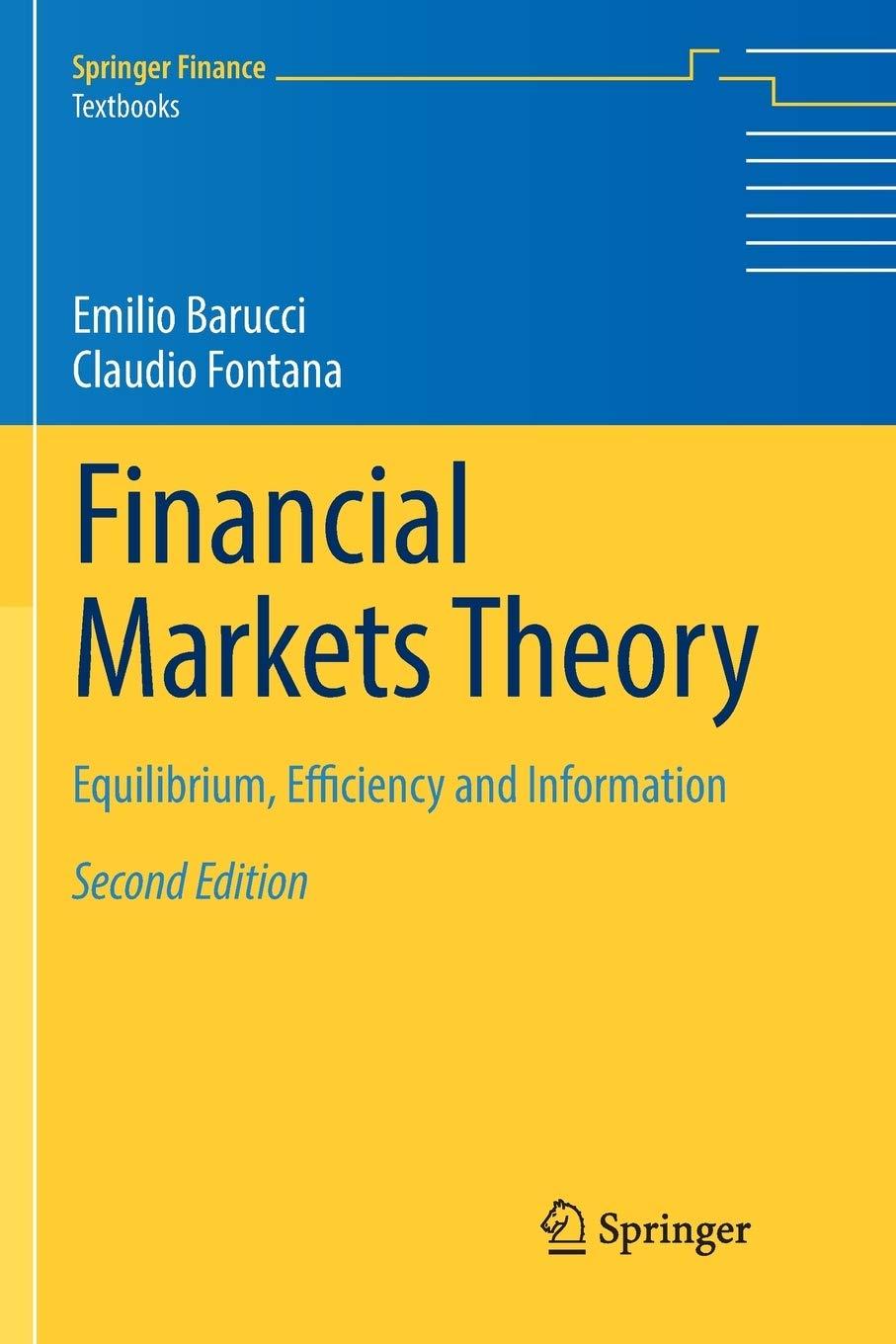Let (tilde{x}) be a random variable with expected value (mathbb{E}[tilde{x}]) and variance (k^{2} sigma^{2}), admitting the representation
Question:
Let \(\tilde{x}\) be a random variable with expected value \(\mathbb{E}[\tilde{x}]\) and variance \(k^{2} \sigma^{2}\), admitting the representation \(\tilde{x}=\mathbb{E}[\tilde{x}]+k \tilde{\epsilon}\), where \(\tilde{\epsilon}\) is a random variable with zero mean and variance \(\sigma^{2}\). Show that, for any strictly increasing and differentiable utility function \(u: \mathbb{R} \rightarrow \mathbb{R}\), the risk premium \(ho_{u}(\tilde{x}, k)\) parameterized by \(k\) satisfies \(ho_{u}(\tilde{x}, 0)=0\) and \(\left.\frac{\partial ho_{u}(\tilde{x}, k)}{\partial k}\right|_{k=0}=0\).
Fantastic news! We've Found the answer you've been seeking!
Step by Step Answer:
Related Book For 

Financial Markets Theory Equilibrium Efficiency And Information
ISBN: 9781447174042
2nd Edition
Authors: Emilio Barucci, Claudio Fontana
Question Posted:





